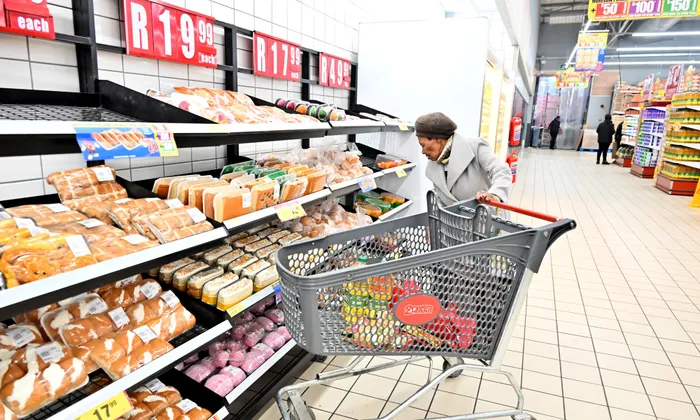Consumers face cost-of-living squeeze as food and fuel prices remain high

Families face ongoing financial pressure as the latest Household Affordability Index shows minimal relief in food prices, petrol costs rise, and the Reserve Bank keeps rates steady. Experts urge budgeting, debt review, and building emergency funds to navigate the cost-of-living squeeze.
Image: Ayanda Ndamane / Independent Newspapers.
South African consumers are feeling the pinch as food prices eased only slightly in September, while petrol prices face upward pressure and the Reserve Bank kept interest rates steady.
Despite small reprieves, families continue to struggle to make ends meet.
The September 2025 Household Affordability Index showed that the average cost of a basic food basket for a family of four was R3 689.64, a figure still well above what many households can afford.
While prices for some items fell slightly, essentials such as chicken gizzards, beef liver, bananas and butternut increased, leaving families juggling tight budgets.
At the same time, motorists were warned to prepare for modest increases in petrol prices next week as global oil fluctuations continue to affect the local market.
Tando Ngibe, Senior Manager at Budget Insurance, said rising transport costs add pressure to household spending.
“Fuel is a non-negotiable expense for most families. Even small increases can quickly impact the monthly budget and reduce disposable income,” he said.
Meanwhile, South Africa’s Monetary Policy Committee (MPC) opted to hold the repo rate at 7%, keeping the prime lending rate at ten point five percent. The decision provides temporary relief for 10.5%, but offers little help for savers whose returns remain low.
Hayley Parry, Money Coach and Facilitator at 1Life’s Truth About Money, said the status quo allows consumers a small window to stabilise their finances.
“For those hoping for good news from the MPC announcement, unfortunately, there will not be any reduction in debt related repayments. The silver lining is that interest rates remain unchanged. While there is no cut, there is no hike either. The status quo holds,” she said.
Parry advised consumers to use the reprieve wisely.
“If you have any spare cash, now is a good time to tuck it away. Prioritise building your emergency fund because financial curveballs have a way of showing up when we least expect them,” she said.
Experts stress that practical steps can make a difference in managing household finances. Reviewing debt to find better interest rates, building a three to six month emergency buffer, tracking spending to curb unnecessary expenses and seeking professional financial advice can help households withstand economic pressures.
Ngibe added that consumers should be proactive.
“Small changes in spending habits or debt management today can prevent larger financial stress tomorrow. Awareness and planning are key to weathering the cost-of-living crunch,” he said.
For South African families, the combination of persistent food costs, looming petrol increases and stagnant borrowing rates means that budgeting and careful financial planning are essential.
The Reserve Bank’s decision to maintain interest rates buys some breathing room, but with global and local economic pressures continuing, consumers will need to remain vigilant.
Neil Roets, CEO of Debt Rescue said that this was a heavy blow for struggling and debt-ridden consumers.
"In light of how little practical relief the two small rate cuts in May and July 2025 have delivered to households, the promise of a more substantial decrease has kept hope alive among South Africans as the cost-of-living crisis continues to escalate. A reduction would have eased the monthly burden on bonds, vehicle finance and credit cards, offering some much-needed relief. Instead households will continue to face enormous financial pressure," Roets said.
"With electricity and utility hikes far above inflation, coupled with other consumer-facing increases like those seen in food and non-alcoholic beverages, this has led to inflation ticking higher - with the consumer price index (CPI) for August 2025, released this week by Stats SA, showing that the two largest contributors to the annual rate remain housing and utilities (4.3%) and food and non-alcoholic beverages (5.2%) – all essential living costs that impact the majority of South African households. These remain painfully high," the Debt Rescue CEO said.
"Sadly, all signs point to the country’s consumer debt crisis likely to intensify in the coming months. With the household debt-to-income ratio now sitting at 70%, the highest we’ve seen since 2017, many families are relying on credit simply to survive, with payday loans on the rise. Without meaningful relief, the consumer debt crisis will only deepen in the months ahead. The announcement may bring stability to financial markets but for ordinary South Africans it feels like yet another reminder of how tough daily life has become. The strain on households is immense and relief cannot come soon enough," Roets further said.